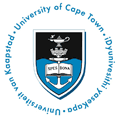Afro-IP learns that the Intellectual Property Law Journal (IPLJ) is a newly established twice-a-year peer-reviewed journal from the Faculty of Law, University of Cape Town (UCT); it will be published by Juta and will provide a platform for debate on local and international IP issues with relevance to South Africa. The IPLJ will publish academic debates, policy interventions and practice-focused pieces.
The IPLJ enjoys the support of an eminent Advisory Board drawn from the judiciary, academia and private practice from South Africa and beyond. Advisory Board members include Justice LTC Harms, Professor Coenraad Visser (UNISA), Professor Julian Kinderlerer (UCT), Tshepo Shabangu (President, South African Institute of Intellectual Property Law & Spoor & Fisher), Professor Jeremy Phillips (Afro-IP team member; IP Consultant, Olswang LLP; Editor-in-Chief, Journal of Intellectual Property Law & Practice) and Professor Peter Yu (Drake University & Editor, WIPO Journal).
The IPLJ is calling for submissions to its inaugural issue, which will be published in November 2012.
Submissions may be in the form of articles, notes and book reviews. The IPLJ sets no minimum length for submissions, but they should generally not exceed 12 000 words (articles), 5000 words (book reviews and case notes) or 3000 words (opinion and practice pieces).
Please send submissions to the IPLJ’s managing editors Lee-Ann Tong and Dr Caroline Ncube by 1 July 2012 via email to editorIPLJ@uct.ac.za.
The IPKat weblog has cheekily suggested that the name Intellectual Property Law Journal is not only highly descriptive but also liable to be confused with other similarly named titles. At the top of the IPKat's home page side bar is a poll, offering readers the choice between Intellectual Property Law Journal and the more distinctive Aardvark. The poll closes just before midnight on Monday 9 April. Please feel free to vote.
The IPLJ enjoys the support of an eminent Advisory Board drawn from the judiciary, academia and private practice from South Africa and beyond. Advisory Board members include Justice LTC Harms, Professor Coenraad Visser (UNISA), Professor Julian Kinderlerer (UCT), Tshepo Shabangu (President, South African Institute of Intellectual Property Law & Spoor & Fisher), Professor Jeremy Phillips (Afro-IP team member; IP Consultant, Olswang LLP; Editor-in-Chief, Journal of Intellectual Property Law & Practice) and Professor Peter Yu (Drake University & Editor, WIPO Journal).
The IPLJ is calling for submissions to its inaugural issue, which will be published in November 2012.
Submissions may be in the form of articles, notes and book reviews. The IPLJ sets no minimum length for submissions, but they should generally not exceed 12 000 words (articles), 5000 words (book reviews and case notes) or 3000 words (opinion and practice pieces).
Please send submissions to the IPLJ’s managing editors Lee-Ann Tong and Dr Caroline Ncube by 1 July 2012 via email to editorIPLJ@uct.ac.za.
The IPKat weblog has cheekily suggested that the name Intellectual Property Law Journal is not only highly descriptive but also liable to be confused with other similarly named titles. At the top of the IPKat's home page side bar is a poll, offering readers the choice between Intellectual Property Law Journal and the more distinctive Aardvark. The poll closes just before midnight on Monday 9 April. Please feel free to vote.











1 comments:
Write commentsThe innovations and creative expressions of indigenous and local communities are also IP, yet because they are “traditional” they may not be fully protected by existing IP systems. Access to, and equitable benefit-sharing in, genetic resources also raise IP questions. Normative and capacity-building programs are underway at WIPO to develop balanced and appropriate legal and practical responses to these issues
Reply